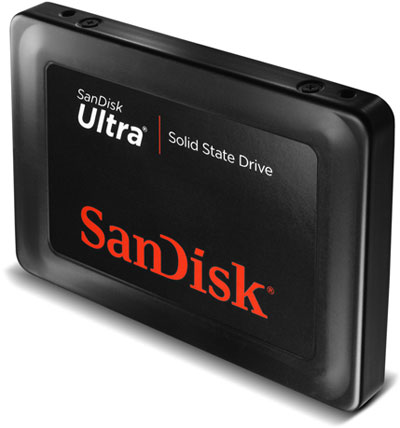Solid-state drives (SSDs) are pretty energy efficient, but there are those in the industry that feel that they can do a lot better and are partnering on developing a new standard called SATA DEVSLP.
Who are they?
They’re SanDisk, Samsung, Intel and Microsoft SanDisk. It’s important to note that three out of four of those produce SSDs. And Microsoft? Well, any tech that helps its Windows 8 OS — which was met with a warm, yet cautious reception at Build this week — eke out extra battery life is worth pursuing especially since Microsoft envisions it on several types of computing devices including tablets and ultrabooks.
IDC’s research director for solid-state drives, Jeff Janukowicz, echoes the sentiment in a statement. “Mobile computing platforms such as Ultrabook devices and tablets are challenged to deliver the high performance and long battery life demanded by consumers. The intent of this initiative is to extend the SATA high-performance standard to better address these low power mobile applications,” he states.
What the companies hope to do is radically cut SSD power consumption by baking SATA DEVSLP into SSDs, chipsets and OSes. The aim is to drop energy use from 50 mW, the benchmark for SSD energy efficiency today, to a mere 5 mW by, in part, keeping SSDs in a low power state for longer. Neat!
The first to implement SATA DEVSLP into its drives is SanDisk, according to the company.
Image credit: SanDisk


Leave a Reply